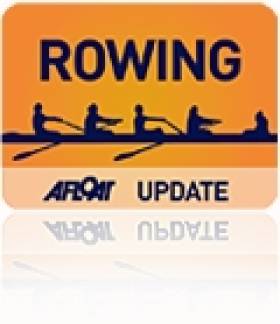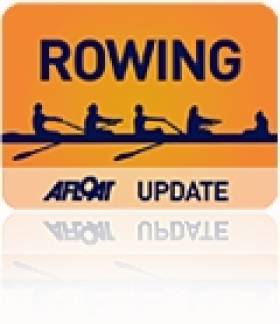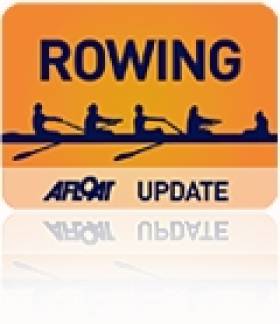Displaying items by tag: Henley Royal Regatta
Neale and Grigalius on Song at Henley
#ROWING: Dave Neale and Eimantas Grigalius made an excellent start at Henley Royal Regatta today. The Three Castles’ men took the lead early in their heat of the Double Sculls and never relinquished it against the lighter crew of Chris Owen and John Hale from Roy Roy Boat Club. Neale and Grigalius had a three-length lead by halfway and won by that margin.
Queen’s exited the Prince of Wales in the first round. The Irish quadruple fell to Tyrian and Thames in a race which was decided early on. Queen’s were behind by a length by 500 metres, and while they made a number of pushes they did not make enough progress into the headwind conditions.
Henley Royal Regatta, Day Two (Selected Results; Irish interest)
Prince of Wales Challenge Cup (Men’s Quadruple Sculls, Intermediate): Tyrian Club and Thames RC bt Queen’s University (G McKillen, A Boreham, T Oliver, C Beck) 3l, 7:17.
Double Sculls Challenge Cup (Men, Open): Three Castles (D Neale, E Grigalius bt Roy Roy (C Owen, J Hale) 3l, 8:08.
Irish Rowing Crews Qualify For Henley Royal Regatta
#ROWING: The Lady Elizabeth coxed four and single sculler Anthony English both qualified for the main draw at Henley Royal Regatta today. The Lady Elizabeth crew of Brendan Smyth, Stuart King, Peter Waldron, David Meehan and cox Brendan Farrell will compete in the Britannia, while English, who has been based in Nottingham, is set for the the Diamond Sculls. It is the premier event for single scullers.
A number of Irish crews were not asked to pre-qualify. The Trinity senior eight will compete in the Temple Cup; Queen’s University have a quadruple scull in the Prince of Wales; Dave Neale and Eimantas Grigalius of Three Castles are entered in the Double Sculls.
Henley Royal Regatta – Qualifiers (Irish interest)
Diamond Sculls: A English
Britannia (Fours, coxed): Lady Elizabeth
Mixed Fortunes for Irish at Henley Qualification Regatta
# ROWING HENLEY QUALIFIERS: The qualifying races for Henley Royal Regatta last evening did not bring joy for Galway Rowing Club. Two crews competed in the Junior Women’s Quadruple, but failed to qualify for the regatta, which begins on Wednesday.
Belfast Boat Club pulled off a fine result in qualifying for the Britannia, a club coxed fours event. They were one of just three of eight crews to qualify.
However, the Queen’s University eight did not make it through the qualifiers to the draw of the Temple Cup.































































